The Breakdown
Pros
Cons
What’s An “Entry Level” Jacket?
At its $144.00 list and $139.00 street price, the AGV Sport Torino jacket is about the least expensive 3/4-length touring jacket available today. It checks all the boxes with, of course, a few compromises. AGV Sport lists the Torino jacket as “entry level”, a label which means it will unfortunately be immediately discounted by the “experienced” rider. “Entry level” isn’t really a fair label, because anyone simply looking for good value might enjoy the Torino, no matter their level of experience.
In fact, sometimes heavier, bigger, bulkier, more complicated — and (much) more expensive — isn’t always better. Let’s face it: you can buy the Torino for almost what the tax would be on a top-of-the-line jacket. Don’t get me wrong — there’s absolutely no comparison between the Torino and, say, a REV’IT! Defender GTX (review) , but many riders will find all they need here.
For example, the Torino is claimed waterproof, with an internal attached liner, so ventilation isn’t the best for what is really a three-season jacket. The outer shell is a 500 denier polyester and the water-resistant liner also provides wind protection. A full-length zip-out insulating liner is also included. The Torino has “CE approved” protectors, but we all know what that means.
It also has a removable foam back pad in a pocket, but the pocket unfortunately doesn’t appear to be shaped to fit any insert that I could find online. Overall, the styling is nicely generic touring/adventure, although as usually happens on lower-end examples of motorcycle clothing, the fit is what might be called “boxy”. It would be nice to fit the Torino with a “real” set of CE certified shoulder and elbow protectors and a back protector.
But here’s the hot tip for any jacket: dump the “armor” that comes with the jacket and get yourself something like a Forcefield Pro shirt (review). It will fit better; it will keep the protectors right next to your bod, where they belong and you can wear it with any jacket you buy, now or in the future.
The one thing that really bothers me about the Torino is the way the seam is vertically placed right down the length of the arm in the back. With its single row of external stitching, this is just asking for a ripping as soon as you hit the ground.
They should have at least sewn on a patch of the polyester or something over the elbows — or how about not putting the seam in the most critical spot on the whole jacket? The irony is, the seam on the inside of the arm is “blind”; i.e., the stitching is on the interior of the sleeve. This should at least be reversed in my opinion.
I guess adding a wear patch is something an owner can do or have done by a tailor, but it would be better if it was done by the factory and the way the seam is designed is a glaring fault, in my opinion. And by time you pay the tailor’s bill, you could move up to the next class of jacket and not have to worry about it to begin with.
However, at 140 dollars, I’m sure there will be plenty of takers for the AGV Sport Torino jacket. Everyone from beginning riders to experienced hands looking for a second touring jacket for cool weather may find something to like.
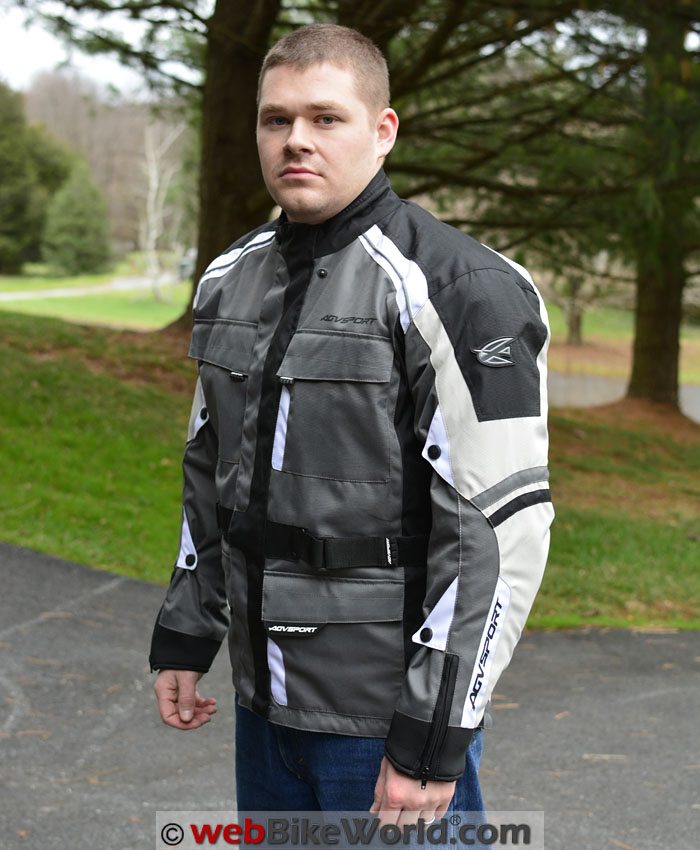
Where to Buy AGV Sport Torino Jacket
Check Reviews & Prices on Amazon Check Reviews & Prices On RevZillaSee More Motorcycle Helmets at RevZilla and Amazon
AGV Sport Torino Jacket Features
The AGV Sport Torino was first announced in Spring of 2014, so it’s not brand new. In fact, it’s semi-popular with motorcycle riders looking for good “bang for the buck”. Not everyone wants to spend north of $300.00 on a jacket and the Torino is less than half that.
It has the basics, including a “Polytex” 500 denier fabric for the shell that pretty much looks and feels like just about every other polyester textile motorcycle jacket out there.
The stitching is very nicely done, with no obvious hanging threads. That’s a plus, but the fact that most of the Torino is single-row stitching is not. AGV Sport says the jacket has “Multiple stitched main seam construction for maximum tear resistance”, but I’m not seeing it.
Water and Wind Resistance
The Torino is also claimed to be “waterproof yet breathable” with a Reissa membrane attached behind the outer shell and between the outer shell and the inner mesh liner.
It’s been below freezing here for some time, so I’ve only had a few chances to ride with the Torino and not in the rain. Some casual “testing” in the shower indicates that the jacket may resist light rain but probably not for a long period of time.
Also, the outer shell will get waterlogged, but that happens on most textile motorcycle jackets as well.
The liner does help to block the wind and even AGV Sport calls this a three-season jacket, for use under 75 F.
The Torino’s main entry zipper has a wide flap overlay that attaches with a nearly full-length strip of hook-and-loop fastener. There is no rain gutter built into the hem on the right-hand placket, but the 70 mm wide flap and the hook-and-loop takes care of business.
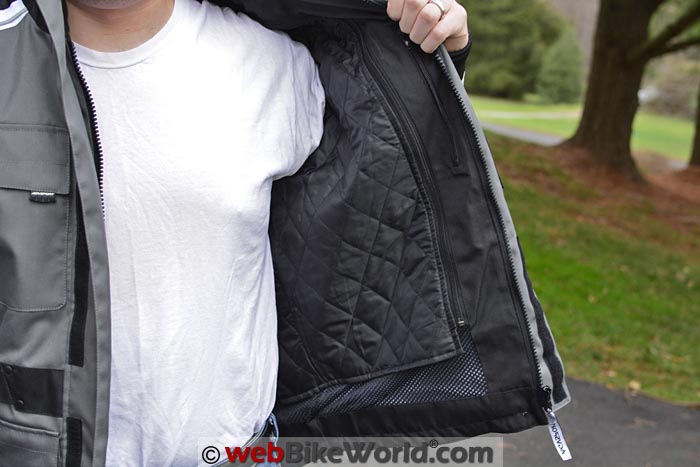
Insulating Liner
The Torino jacket has a removable “75 gram” insulating liner that’s actually pretty nice, comfy and relatively warm without feeling bulky.
It isn’t just a vest either; it runs all the way up one side, around the neck and down the other size with a full single zipper — an excellent feature.
The insulation continues down the sleeves, which attach at the bottom with elastic loops and two buttons on each sleeve. The buttons are actually a good idea — kind of low tech — but if one breaks, you can sew on a new button.
By the way, AGV Sport states that the mesh liner in the jacket shell is a “permanent anti-bacterial polyester mesh lining.” It’s comfortable also, once the insulating liner is removed.
Between the rather nice outer shell textile and the water-resistant membrane liner and the insulating liner, the Torino does a pretty good job at keeping me warm. I wouldn’t ride in, say, sub-40 F weather… at least not without a nice heated vest underneath.
And in fact, another little secret is that the Torino — with its slightly bulky fit — actually works better with a heated vest than one of those tight-fitting high-spec jackets. I know; I’ve tried it.
Jacket Weight
This size large jacket with the insulating liner installed weighs just 1.8 kg (4 lbs.), which is pretty light compared to high-end jackets. I think that indicates that there is not an over-abundance of extra levels of protection or fabric included.
But on the other hand, the light weight makes the jacket more comfortable and frankly, I prefer riding in lighter-weight clothes rather than heavy if I can.
It just gives me a more comfortable feeling on the bike and I can move around easier without feeling constrained.
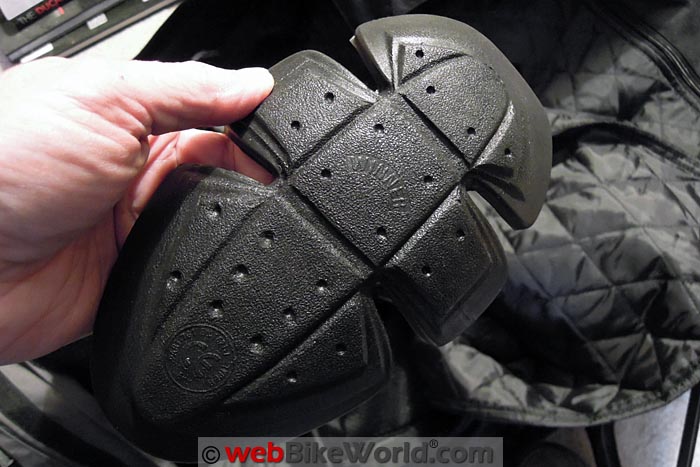
Protectors and Protection
AGV Sport claims “CE approved dual-density shoulder and elbow protectors” in the Torino jacket. The “armor” is labeled as the “Winner” brand and it has a molded imprint on the back for “EN 1621-level 1”.
But, as has been written before on webBikeWorld, first of all, there’s a difference between “CE approved” and “CE certified”. And if the protectors don’t come with an official CE certification document attached that lists the official CE certification lab, then it isn’t.
So in this case — as is usually the case — “CE approved” means that some factory either (hopefully) at least tested the protectors to the CE standards or it’s fake. For 140 bucks, I suspect the latter.
But again, we’ve gotten into the habit here of chucking any of the protectors that come in a jacket anyway, no matter the list price, and wearing genuine protection underneath in the form of a tight-fitting shirt and pants.
If you’re really concerned about protection, then that’s the best way to go with a jacket like the Torino and many others.
It’s a rare jacket indeed that is fitted and styled correctly to hold the protectors in place…and then if it is, many riders wouldn’t wear it anyway, because it would feel too tight or constricting.
Anyway, that being said, “a little protection is better than none” and I’m sure the rubbery stuff that’s in the elbows and shoulders of the Torino jacket will at least help a little for a bounce or two.
But back to that stitching on the outside of the sleeves — I just wish it wasn’t a single row that’s right down the middle. I can just picture the sleeve immediately splitting open on impact. Let’s hope not…
But once more, in the spirit of “a little is better than none”, surely wearing the Torino jacket is a heap better than wearing some flimsy street jacket. “You pay your money and you take your chances”, as the saying goes…
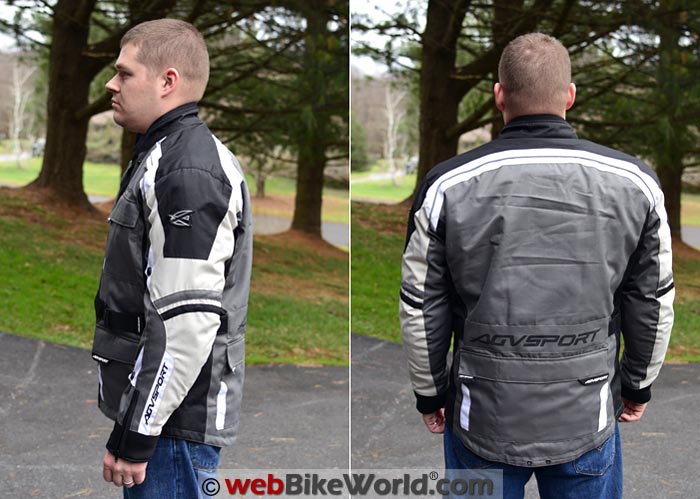
Where to Buy AGV Sport Torino Jacket
Check Reviews & Prices on Amazon Check Reviews & Prices On RevZillaSee More Motorcycle Helmets at RevZilla and Amazon
Ventilation
Much like the AGV Sport Tempest jacket we reviewed 6 years ago in 2010 (and which is pretty much a short version of the Torino), the Reissa membrane system is bonded to the inside of both jackets.
This means that there are no vents through the membrane, which means there is no direct air flowing on the rider.
Theoretically, with breathable membranes such as this and Gore-Tex, for example, the air that circulates around the membrane is supposed to carry way moisture.
But unlike the Tempest jacket, they didn’t even pretend to add vents to the Torino, which is just fine with me, because unless a vent is designed properly and can bring air through to the rider, there’s not much sense and the vent can only be a potential point of leakage.
AGV Sport is right up front about this, calling the Torino jacket a three-season type for temperatures under 75 degrees.
That’s actually pretty good of them, as most clothing manufacturers would rather tell you the clothing is four-season capable when it’s not.
We’re deep into cold winter here, so the few times I was able to ride with the Torino I had the hatches battened down tight anyway, and the system works fine for those type of riding conditions.
Bottom line? There are no vents in the Torino jacket and as long as you understand the purpose of the jacket and the meteorological constraints, that’s not a problem.
Zippers and Closures
AGV Sport says that YKK zippers are used in the Torino jacket but none of the zippers on this jacket are labeled, which is suspicious because YKK zippers are almost always labeled as such on the zipper pull and there’s no other branding — the zipper pulls are blank.
However, the zippers are of good quality and work “like a YKK”. So a zipper is a zipper, right? More or less…
The main entry zipper has large poly teeth and it’s easy to use, so no problems there. The insulating liner zipper is a one-piece that runs all the way around, which is good because it keeps the liner firmly in place without snaps or buttons.
That zipper is the coil type and it works smoothly. The zippers on the sleeve cuffs are the miniature teeth type and they work fine as well.
The main entry zipper has a long fabric pull attached, which is nice also.
Jacket Collar
Like the Tempest jacket of 2010, the collar of the Torino jacket has a simple closure system, this time it’s a single metal IRC brand snap with no adjustment.
It’s on a fabric tab that does a good job of covering the front of the neck around the throat, without feeling choked when wearing a full-face helmet.
The single snap means there is no neck adjustment but the neck on this size large jacket fits up to a 17.5″ neck circumference.
The inside of the collar is lined with a very comfortable 40 mm tall micro-fleece and there’s a 12 mm strip of neoprene across the top. Both of these combined make for a very comfortable collar and neck with no chafing.
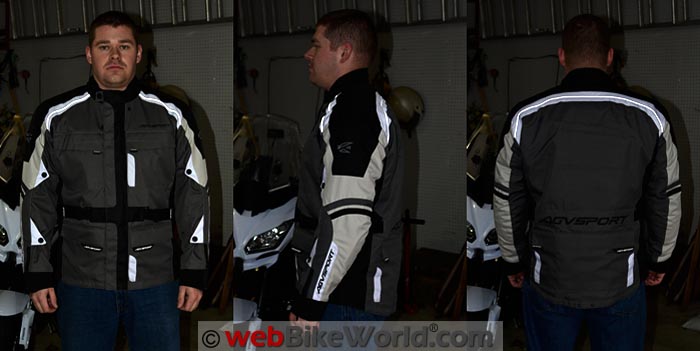
Reflectivity
Illustrated in the photo above, the Torino jacket includes a few reflective strips of mildly reflective piping along the upper chest, back and arms, with additional reflective material on the sleeves.
Arm and Waist Adjusters
The Torino jacket has two-snap adjusters on the upper arm and forearm with rubberized snap covers. They are not elastic and since the first snap is the “home” position, there is one more adjustment by using the second (inboard) snap.
The snaps are metal underneath and labeled IRC brand and they seem of good quality.
The sleeves have plenty of room and tightening them up one snap is effective, but probably not effective enough to keep the internal protectors in place during a crash.
The Torino has a very nice waist adjustment system, with a 40 mm wide strap with hook-and-loop. It feeds through a square “D” ring on either side on the front of the jacket.
The only issue here is that the ends of the adjustment strap in front are attached with a pair of rivets on both sides and the strapping ends shortly after the rivets.
This is rather than have the strapping run all the way to the center of the jacket in front and double- or triple-stitched along a section to ensure that it won’t tear.
Hopefully, the rivets will hold up over time but this is one of the places where you can tell a few corners were cut to keep the price low. Does it matter? Probably not that much, considering the intended use. But, it’s something to note.
Also, at the rear of the jacket where the adjuster belt looks like it runs under a section of fabric to go all the way around the back, it doesn’t.
The waist adjuster belt ends just as it enters the gray fabric and there doesn’t seem to be any additional stitching or rivets or anything to hold it.
So, apparently a lot of cost-cutting here, the waist adjustment strap works very nicely but I hope it holds up over time.
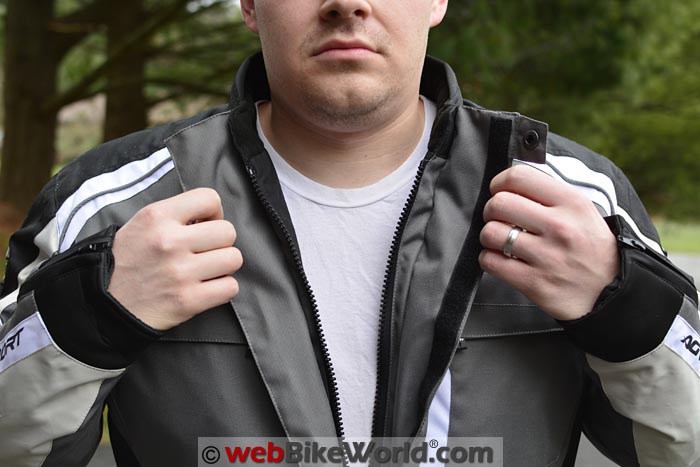
Where to Buy AGV Sport Torino Jacket
Check Reviews & Prices on Amazon Check Reviews & Prices On RevZillaSee More Motorcycle Helmets at RevZilla and Amazon
Sleeve Cuffs
The sleeve cuffs on the Torino jacket deserve some mention because they are somewhat different than normal.
The cuffs have no adjustment, but they are wide strips of fairly thick and stretchy neoprene — the black sections you can see at the end of the sleeves in the photos.
Because there’s no adjustment for width, what you see is what you get. Each sleeve cuff has a 150 mm long zipper on the front that is used to open the cuff when the jacket goes on or off, although the cuff diameter is wide enough that the zipper may be superfluous.
This is a good sleeve cuff design for wearing over the glove gauntlets. In that case, the zipper comes in handy, as it can be opened and the cuffs can be placed over the gauntlet and then fasten the zipper to keep everything secure.
In fact, this may be the preferred method, because the zippers are not waterproof, so the glove gauntlet can do that for you.
Jacket Sizing and Fit
The Torino jacket runs about one size large, based on this size large example. The fit or shaping isn’t tapered like a high-end jacket and this has been noted before on webBikeWorld jacket reviews.
Tthe lower-end jackets don’t have as much attention paid to overall fit. Instead, they’re usually more “boxy” in shape.
Again, not necessarily a problem and, in fact, the slight bulkiness or generosity of the fit can actually feel more comfortable and may be desired by some riders, overweight or not.
Also, the roominess inside the jacket helps when you want to add a sweater or heated vest or jacket.
The model in the photos has a 44″ chest and muscular arms, and you can see this size large fits him with room to spare.
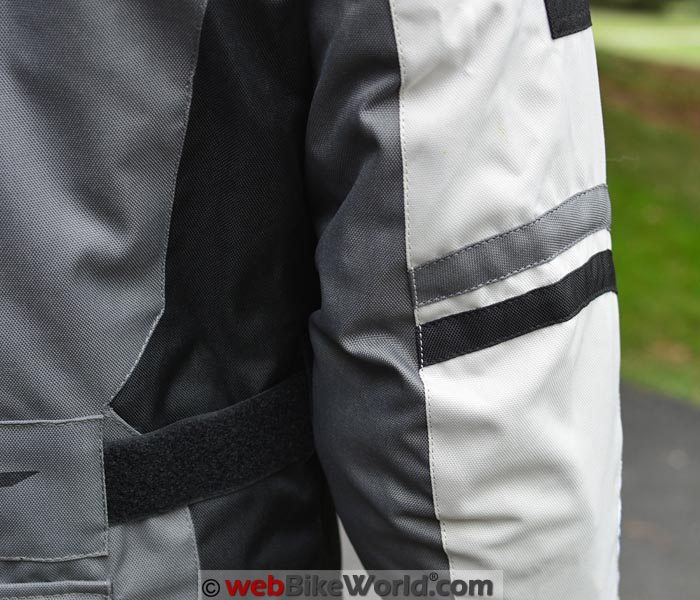
Pockets
The Torino jacket has 4 large cargo-type pockets in the front, covered with a wide/tall hook-and-loop flap.
These pockets don’t have an extra dart underneath, so they can’t really be over-stuffed, but they are very large and easy to access and useful. They are not waterproof.
In the rear is a large full-width pocket that can be used to store the insulating liner if it’s removed or a pair of gloves or vest.
Also, there is the handy vertical pocket on the inside of the left placket and this one does have a waterproof lining. I use it to store my wallet when riding.
Miscellaneous Features
Like the Tempest jacket, the Torino jacket has a short attachment zipper in the rear that can be used for attachment to AGV Sport pants.
Conclusion
The AGV Sport Torino jacket is first of all, inexpensive. To some — or many — that will be the most important factor here.
It is difficult to find a similar jacket at this price or lower.
Looking at competitive brands, such as Joe Rocket, Fieldsheer or Tourmaster, you’d have to spend maybe $50.00 to $100.00 more to get into the “entry level” class.
The Torino jacket looks pretty good and it at least pays lip service to all the features you need. In fact, it’s a serviceable jacket that actually works well in cooler weather and it has plenty of room inside for extra liners or heated garments.
The one big issue I have with the Torino jacket is the way the sleeve seams come together just at the wrong place — in the rear, right in the center of the elbow.
The single stitching there just doesn’t give me a lot of confidence that this jacket won’t burst apart very quickly in a crash.
I’d urge AGV Sport to either modify the stitching location or to add some type of abrasion-resistant patch over the elbow and lower arm in this area.
Otherwise, for $140.00, you’re getting a jacket that works in three seasons and maybe more. It may be all the jacket anyone needs; that’s up to each individual to decide. The Torino does have a one-year guarantee also, if that helps.
| wBW Product Review: AGV Sport Torino Jacket | |
|---|---|
| Manufacturer: AGV Sport (U.S.) | List Price (2016): $144.00 |
| Colors: Black/gray | Made In: China |
| Sizes: S-3XL | Review Date: February 2016 |
Note: Item provided by a retailer, distributor or manufacturer with these Terms and Conditions.
Where to Buy AGV Sport Torino Jacket
Check Reviews & Prices on Amazon Check Reviews & Prices On RevZillaSee More Motorcycle Helmets at RevZilla and Amazon
Owner Comments and Feedback
See details on submitting comments.
From “G.N.” (February 2016): “Nice review of a bang for the buck jacket. I’m sure a lot of new riders will be interested in these. Anything that can keep them from getting scared by the prices of the established brands are nice.
Maybe you should also try getting one of the new Oxford jackets for a review.
Price-wise they are a step above the likes of this AGV Sport, with a very similar set of features and a few extras, but they seem to be better made. I got one called the Montreal 2.0 and so far I like it.
Its price tag of just under $200 screams budget jacket but the product itself doesn’t seem like one. Believe it or not, it also has a fixed waterproof liner but I don’t really find it torturous to wear in Southeast Asia’s eternal summer.”


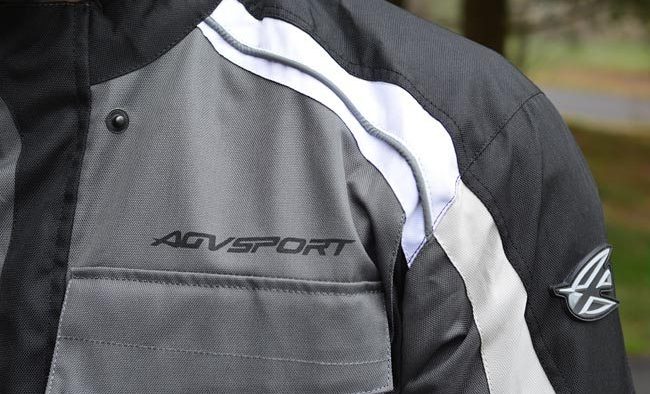
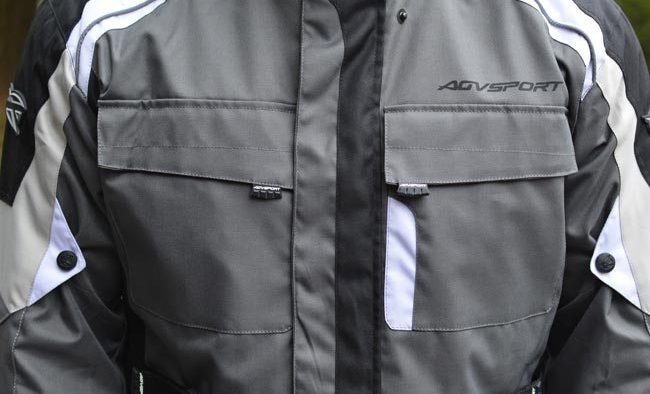

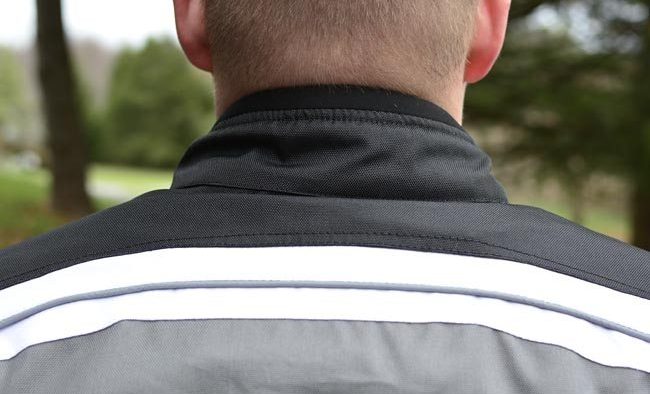
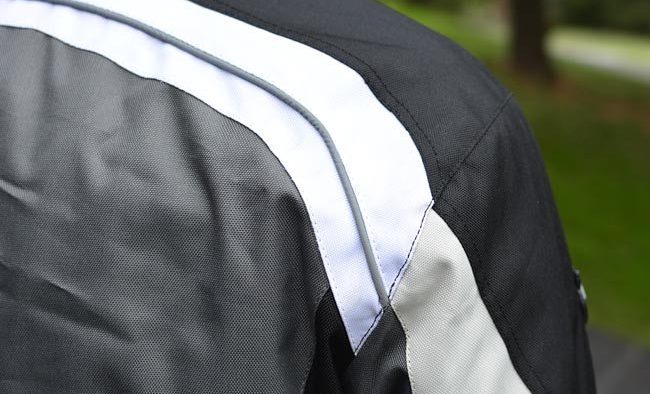

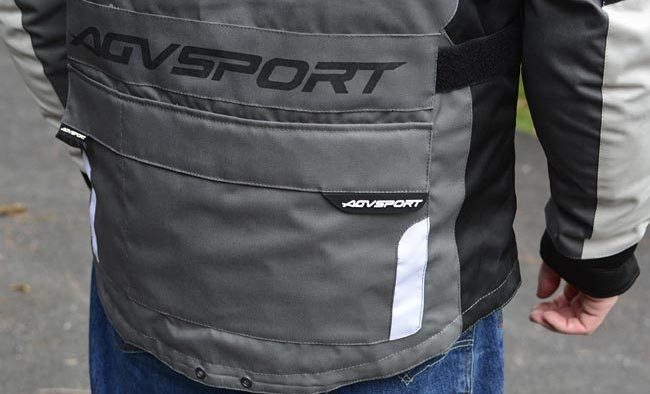
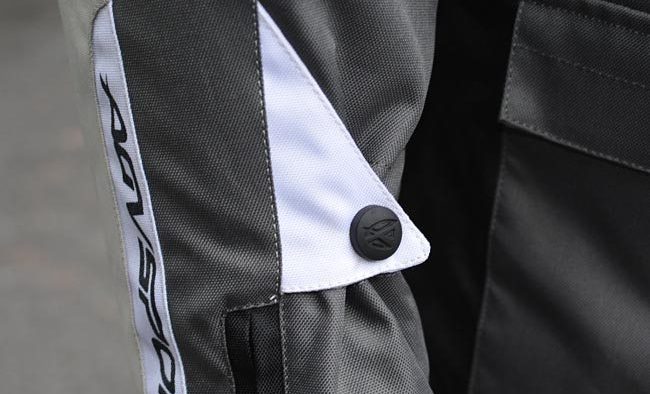
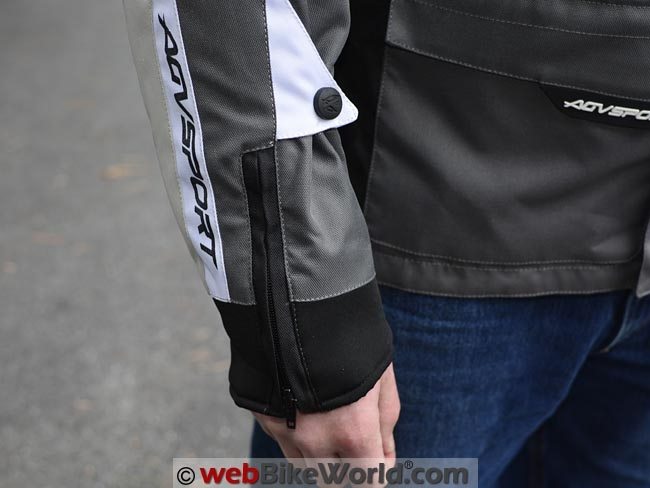
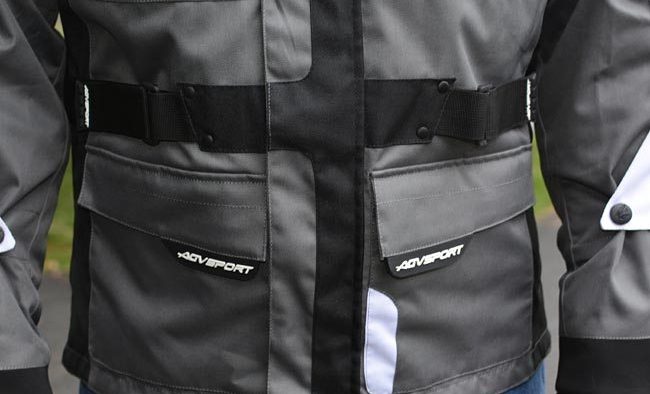
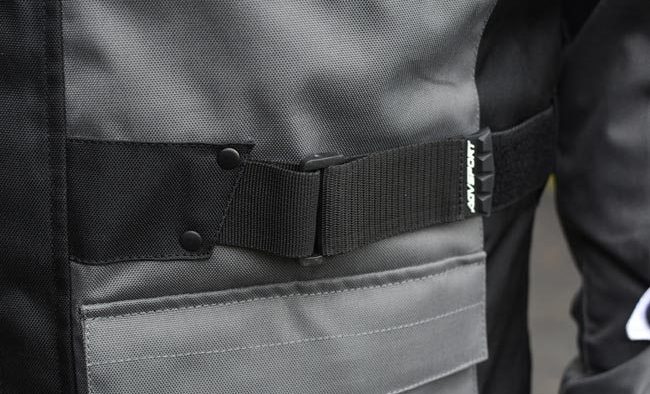
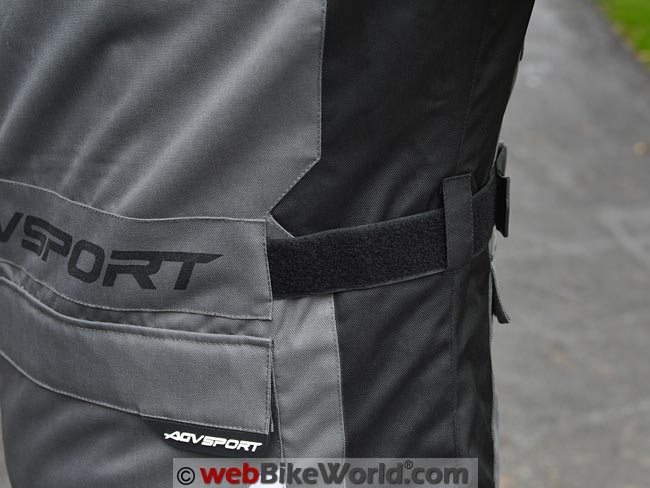

No Comment